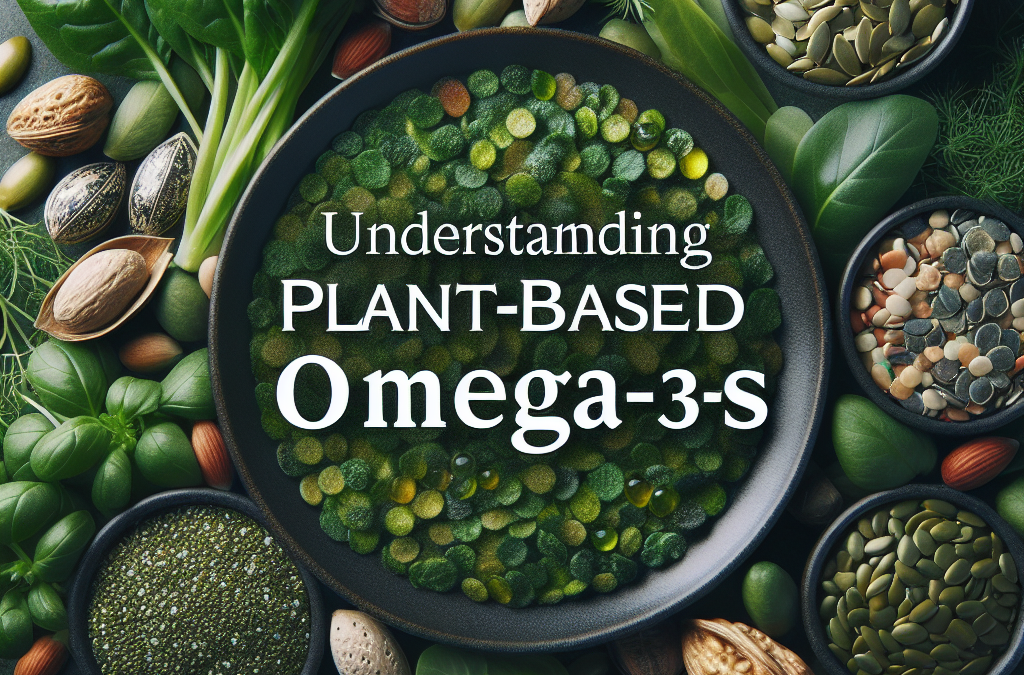What are Omega-3 Fatty Acids?
Introduction to Omega-3s
Hey there! Today, I want to dive into the world of Omega-3 fatty acids—specifically, the plant-based varieties. These little guys are super important for our health, but let’s break down what they actually are. Omega-3s are a type of polyunsaturated fat that our bodies need but can’t produce on their own. That’s right; we’ve got to get them from our diet!
There are three main types of Omega-3s: ALA (alpha-linolenic acid), EPA (eicosapentaenoic acid), and DHA (docosahexaenoic acid). The cool thing is that ALA is the only one we can find in plants. EPA and DHA typically come from fish and algae. So if you’re plant-based, ALA is your main focus.
Understanding Omega-3s is crucial because they play a key role in heart health, brain function, and even inflammation reduction. So let’s take a closer look at why these fats are a big deal for you!
Sources of Plant-Based Omega-3s
Top Plant-Focused Foods
So, you’re probably wondering where to find these plant-based Omega-3s, right? Well, let me tell you, there are quite a few tasty options out there! First up, chia seeds. Toss them in a smoothie or sprinkle them on your oatmeal for a crunchy boost of nutrition.
Next on my list would be flaxseeds. They are not just a trendy health food; they are powerhouses of ALA! Just remember, grinding them up enhances nutrient absorption, so don’t skip that step. Trust me, your body will thank you.
Walnuts are another great source. These little nuts are perfect for snacking and can be added to salads or baked goods. They add a nice crunch and pack a serious nutritional punch!
Benefits of Plant-Based Omega-3s
Health Perks Galore!
Let’s chat about why you should be all-in on plant-based Omega-3s. One of the standout benefits is heart health. Regular intake can help lower bad cholesterol and reduce the risk of heart disease, which is something we all want to keep in check.
Another amazing benefit is brain function. Research suggests that Omega-3s are crucial for cognitive health and may even help ward off dementia as we age. Who wouldn’t want to keep their mind sharp, right?
Get Certified Organic Whole Food Nutrition – Nutrient Dense Supplement
Plus, these fats can help combat inflammation. Whether you’re dealing with arthritis or just the daily wear and tear of life, incorporating Omega-3s into your diet can provide you with some relief. It’s like a soothing balm for your body!
Incorporating Omega-3s into Your Diet
Practical Tips and Tricks
Okay, so now that we know how great Omega-3s are, how do we actually get them into our meals? One fun way is by adding chia seeds to smoothies. They gel up when mixed with liquids, giving your drink an interesting texture. Plus, you hardly notice they’re there!
Another simple tip is to use flaxseed oil in salad dressings. Just whisk it with some vinegar and spices, and you’re golden! It brings a nutty flavor and loads of omega goodness.
Finally, don’t forget about snacking! Grab a handful of walnuts instead of chips next time hunger strikes. It’s an effortless way to boost your Omega-3 intake while munching away at something satisfying!
Potential Challenges
What to Watch Out For
While incorporating plant-based Omega-3s has a ton of benefits, there are a couple of challenges to keep in mind. One major thing is that ALA needs to be converted in the body to EPA and DHA, and this process isn’t super efficient. So, ensure you’re eating a variety of sources to cover all bases.
Another challenge is simply remembering to include these foods regularly. Life can be busy, and it’s easy to overlook nutrition. That’s why I’ve made it a habit to plan my meals and snacks weekly. It helps keep my Omega-3s on track!
Lastly, if you’re relying solely on plant sources, you might need to consider supplementation for EPA and DHA, particularly if you’re not eating fish or algae. A quality algal oil supplement can fill those gaps quite nicely without compromising your plant-based lifestyle.
FAQ
- What are the main types of Omega-3s?
A: The three main types are ALA, EPA, and DHA. ALA is the one found in plant sources. - Can I get enough Omega-3s from a plant-based diet?
A: Yes, you can get plenty of ALA from sources like flaxseeds, chia seeds, and walnuts, but you may want to consider supplements for EPA and DHA. - What’s the best way to incorporate Omega-3s into my meals?
A: You can add chia seeds to smoothies, flaxseed oil to dressings, and munch on walnuts as snacks. - Are there any side effects of taking Omega-3 supplements?
A: Generally, they are safe, but you may experience mild digestive issues. Always consult with a healthcare provider before starting any supplement. - How do Omega-3s benefit my health?
A: They support heart health, enhance brain function, and help reduce inflammation.





